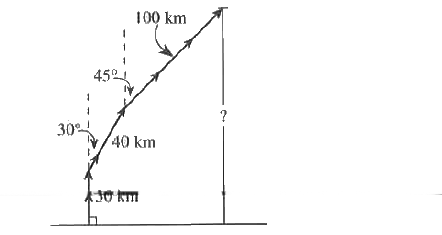A train travels at a constant rate. If the train takes 13 minutes to travel m kilometers, how long will the train take to travel n kilometers?
13mn
13nm
13mn
m13
The correct Answer is:B
To solve the problem step by step, we can follow these instructions:
Step 1: Understand the Given Information
We know that a train travels at a constant rate. It takes 13 minutes to travel a distance of m kilometers.
Step 2: Determine the Time Taken to Travel 1 Kilometer
To find out how long it takes the train to travel 1 kilometer, we can divide the total time taken by the distance traveled:
Time to travel 1 km=13 minutesm km=13m minutes/km
Step 3: Calculate the Time Taken to Travel n Kilometers
Now, to find out how long it will take to travel n kilometers, we can multiply the time taken to travel 1 kilometer by n:
Time to travel n km=n×(13m)=13nm minutes
Final Answer
Thus, the train will take 13nm minutes to travel n kilometers.
---
We know that a train travels at a constant rate. It takes 13 minutes to travel a distance of m kilometers.
To find out how long it takes the train to travel 1 kilometer, we can divide the total time taken by the distance traveled:
Time to travel 1 km=13 minutesm km=13m minutes/km
Now, to find out how long it will take to travel n kilometers, we can multiply the time taken to travel 1 kilometer by n:
Time to travel n km=n×(13m)=13nm minutes
Thus, the train will take 13nm minutes to travel n kilometers.
Similar Questions
A car travels 165 km in 3 hours.
How long will it take to travel 440 km?View SolutionTwo trains leave a railway station at the same time. The first train travels towards west and the second train towards north. The first train travels 5 km/hr faster than the second train. If after two hours they are 50 km apart find the average speed of each train.
View Solution
Knowledge Check
- Question 1 - Select One
A cyclist travels at 12 miles per hour. How many minutes will it take him to travel 24 miles
A1B120C30D60 - Question 2 - Select One
Rita travels 3 km in 15 minutes on her bicycle. How much time will she take in travelling 7 km?
A35 minutesB45 minutesC65 minutesD85 minutes - Question 3 - Select One
A rocket lifted off from a launch pad and traveled vertically 30 kilometers, then traveled 40 kilometers at 30∘ from the verical, and then traveled 100 kilometers at 45∘ from the vertical, as shown in the figure below. At that point, the rocket was how many kilometers above the height of the launched pad?
 A100B170C190D30+20√3+50√2
A100B170C190D30+20√3+50√2
A parrot is flying due east at a speed of 5 m/s. A train 300 m long is also travelling due east at a speed of 15 m/s. Both parrot and train are moving in same straight line and train is 100 m behind the parrot at t=0. Then how long will train take to overtake the parrot completely?
View SolutionThe speed of a train increases at a constant rate α from zero to v and then remains constant for an interval and finally decreases to zero at a constant rate β. The total distance travelled by the train is l. The time taken to complete the journey is t. Then,
View SolutionA train travels a distance of 300 km at constant speed. If the speed of the train is increased by 5 km an hour, the journey would have taken 2 hours less. Find the original speed of the train.
View SolutionA train accelerates from rest at a constant rate α for some time and then it retards to rest at the constant rate β. If the total distance covered by the train is s, then the velocity of the train is
View SolutionTrain X is traveling at a constant speed of 30 miles per hour and Train Y is traveling at a constant speed of 40 miles per hour. If the two trains are travelling in the same direction along the same route but Train X is 25 miles ahead of Train Y how many hours will it be until Train Y iis 10 miles ahead of Train X?
View Solution

